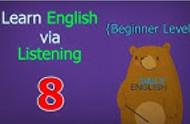21、stop doing sth, stop to do sth
stop doing sth停止正在做的事,后接动名词作宾语。
例句:When the teacher came in, all the students stopped talking immediately.当老师进来的时候,所有学生立即停止交谈。
stop to do sth停下来做另外一件事,后接动词不定式作目的状语。
例句:Tom, you have been watching TV for half an hour already, please stop to do your homework now!汤姆,你已经看了半小时的电视了,现在停下来(别看电视了)去做你的作业。
22、practise (doing)sth
练习做某事,后接名词或动名词。
例句:If you would like to improve your spoken English, you must make full use of your time to practise speaking English every day.如果你想提高你的英语口语的话,每天你必须充分利用你的时间来练习讲英语。
23、prefer sth, prefer to do sth, prefer sth to sth, prefer doing sth to doing sth, prefer to do sth rather than do sth
prefer=like better宁愿、更喜欢
例句:Which do you prefer? Tea or coffee? I prefer coffee (to tea).茶和咖啡,你更喜欢哪个?(相对于茶)我更喜欢咖啡。
又如:I prefer to stay at home instead of going out for a walk tonight.=I prefer to stay at home rather than go out for a walk tonight.=I prefer staying at home to going out for a walk tonight.= I would rather stay at home than go out for a walk tonight.今天晚上,我宁愿待在家里而不愿出去散步。
另外:prefer sb to do sth宁愿、更喜欢某人做某事。
24、miss(doing)sth
错过做某事,后接名词或动名词。
例句:Hurry up! Or you will miss(catching) the bus.赶紧一点,否则你会错过(赶上)公交车。
又如:My brother missed being caught in a heavy rain yesterday afternoon.昨天下午,我哥哥错过被一场大雨淋湿。
25、be tired of (doing)sth
厌烦、讨厌、厌倦做某事,后接名词或动名词。
例句:He is much too tired of doing his homework all night long.他太厌倦一整夜做他的作业了。
又如:He is tired of watching TV at home every day.他厌倦了每天在家里看电视。
26、be afraid of doing sth, be afraid to do sth
两个短语都有“不敢去做某事”的意思, 但be afraid to do sth.真正的意思是“害怕做某事”, 也就是主语对做某事内心感到恐惧;be afraid of doing sth.表示主语内心里不情愿做某事, 也可以说是不希望发生某事, 但自己不一定能避免它。例如:
He was afraid to go out alone at night.(他害怕晚上独自外出。暗含的意思是“他对于晚上独自外出缺乏安全感”。)
He came late to school and was afraid of being scolded by the teacher.(他上学迟到了, 害怕被老师责备。暗含的意思是“他不情愿被老师责备”。)
用“不敢”来辨别这两个短语很能说明问题。
He is afraid of being beaten by his father.他怕被他爸打。(不是他敢不敢的问题,他是不情愿。)
He is afraid to touch the snake.他不敢碰那条蛇。(他内心里恐惧蛇。)
27、waste time/money (in)doing sth
浪费时间、金钱做某事,后接名词或动名词,介词in可以省略。
如后接名词,介词应用on. 句型为waste time/money on sth
例句:He wastes too much time (in)playing video games every day.每天他浪费太多时间玩电脑游戏。
又如:Don’t waste too much money on clothes.别在服装上面花太多的金钱。
28、see /look at/hear/watch/notice/observe/listen to/feel/find sb doing sth/do sth
see sb do sth 强调看到某人做过了某事, 已经做完;
see sb doing sth 强调看到某人正在做某事, 还在做。
例句: I saw a boy play by the river just now. 我刚才看到一个男孩在河边玩过。
I saw a boy playing by the river when I passed by.当我经过的时候,看到一个男孩在河边玩耍。
He saw the thief enter the house and steal something.他看到那个小偷进入房间并偷走了什么东西。
I saw Li Hua playing football in the playground when I went to the library this afternoon.今天下午当我去图书馆的时候,看到小华在操场上踢足球。
其它几个动词用法一样。
29、suggest (sb’s)doing sth
建议做某事,后接名词或动名词。不能说suggest sb to do sth;suggest 后面可以接宾语从句,宾语从句要用虚拟语气。句型为:suggest (that )sb (should) do sth,that和should可以省略。
例句:I suggest going on an outing this weekend.我建议这周末出去郊游。
I suggest his leaving here as soon as possible.我建议他尽快离开这里。
I suggest (that) you (should) do a lot more sports every week.我建议你每周进行更多的体育锻炼。
30、can’t help(to)do sth, can’t help doing sth
can’t help(to)do sth,不能帮助做某事,后接动词不定式,to可以省略。
例句:I can’t help take care of your pet dog because I am so busy these days.我不能帮助照看你的宠物狗,因为这些天我实在太忙。
can’t help doing sth情不自禁、忍不住做某事,后接动名词。
例句:I couldn’t help laughing after he told us a joke.当他讲了一个笑话之后,我忍不住大笑起来。
另外help的句型还有:help sb (to ) do sth, help sb with sth帮助某人做某事。
,














